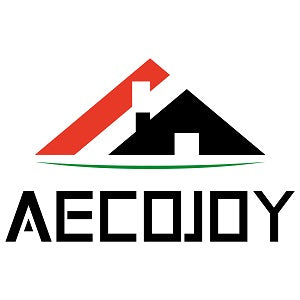When shopping for a backyard gazebo, one of the biggest decisions you’ll face is frame material: steel or aluminum? While both are popular for outdoor structures, the choice between steel vs aluminum can have a lasting impact on durability, maintenance, and even your budget.
Should you invest in a sleek aluminum gazebo that’s rust-resistant and lightweight? Or go for a solid steel frame gazebo that offers unmatched strength and stability? In 2025, the answer depends on more than just appearance.
This guide will walk you through everything you need to know about gazebo steel versus aluminum patio gazebo structures—so you can make the right choice for your climate, space, and lifestyle.
Why Choosing the Right Gazebo Frame Material Matters?
Your backyard gazebo isn’t just a seasonal setup. It’s an outdoor centerpiece that endures wind, rain, sun, and sometimes snow. That’s why selecting the right frame material—steel or aluminum—is about more than what looks good on your patio.
Here’s why your choice matters:
①Long-Term Investment: A well-built gazebo lasts years. Choosing the right material reduces repair and replacement costs.
②Weather Protection: Different metals respond differently to heat, moisture, and cold. Your climate should guide your decision.
③Daily Functionality: Weight, portability, and maintenance needs affect how easy it is to install, clean, and enjoy your gazebo.
Let’s take a closer look at how steel vs aluminum frames differ in performance and practicality.
|
Feature |
Steel Frame Gazebo |
Aluminum Gazebo Frame |
|
Strength |
High |
Moderate |
|
Weight |
Heavy – stable but less portable |
Lightweight – easier to handle |
|
Rust Resistance |
Needs coating/protection |
Naturally rust-proof |
|
Cost |
Generally more affordable |
Slightly higher upfront |
|
Maintenance |
Moderate – may need sealing |
Low – easy to clean |
As this chart shows, steel frame gazebos tend to be stronger and cheaper but heavier and more prone to rust. Meanwhile, aluminum patio gazebos are light, low-maintenance, and corrosion-resistant—but may not offer the same level of structural stability in extreme conditions.
Elevate your outdoor living with the AECOJOY 20' x 12' Wall-Mounted Gazebo Pergola in dark gray. Its robust aluminum and alloy steel frame, coupled with a durable polycarbonate roof, offers year-round protection against sun, rain, and light snow. This sleek, modern design seamlessly attaches to your home, creating an elegant extension to your patio or deck. Whether you're hosting gatherings or seeking a tranquil retreat, this gazebo provides the perfect blend of style and functionality.

Steel vs Aluminum — Core Material Differences That Impact Your Gazebo
At the heart of your gazebo frame is its material—and understanding what sets steel vs aluminum apart will help you decide which structure fits your needs best.
Let’s start with the basics. Steel is an iron-based alloy known for its density, strength, and rigidity. It’s heavier and more solid, making it ideal for applications where stability is key. In contrast, aluminum is a non-ferrous metal that’s much lighter in weight but still surprisingly durable. It’s naturally resistant to rust and corrosion, even without surface treatment.
These material properties translate into clear differences when used for gazebo steel frames or aluminum patio gazebos.
Here’s how their key physical properties stack up:
|
Property |
Steel Frame Gazebo |
Aluminum Gazebo Frame |
|
Density & Weight |
High – very heavy and solid |
Lightweight – easier to move and install |
|
Rust Resistance |
Requires coating or galvanization |
Naturally rust-proof |
|
Flexibility |
Strong but rigid – less bending |
Flexible under force, but more prone to dent |
|
Heat Conductivity |
Absorbs heat – may get hot in summer |
Stays cooler to the touch |
|
Ideal Frame Uses |
Wind-prone or permanent setups |
Moderate climates, attached wall gazebos |
This is why aluminum gazebos are often used for wall-mounted pergolas or adjustable patio covers—they’re easier to install and require less upkeep. Steel frame gazebos, on the other hand, are better for freestanding structures that need to stand firm in windy areas or large open backyards.
Steel vs Aluminum — Which Material Offers Better Strength and Stability?
If strength is your top priority, steel gazebo frames are hard to beat. Their high density gives them the ability to hold heavier loads and stay anchored during strong winds or storms. This makes patio steel gazebos a smart choice for regions that experience tough weather conditions.
Additionally, the weight of steel provides a natural resistance to movement. You’ll find steel frame gazebos especially useful for larger freestanding models, such as those placed over outdoor dining sets or used for events.
However, strength isn’t everything. In areas with mild weather or for temporary setups, aluminum gazebos provide plenty of stability without being a hassle to handle. They’re easier to assemble, easier to transport, and require fewer tools during installation.
Here are some real-world examples:
①For permanent backyard coverage in a windy region → Steel frame gazebo
②For a stylish, maintenance-light solution next to the house → Aluminum wall-mounted gazebo
③For occasional summer use that needs quick setup → Aluminum patio gazebo
In short, if your gazebo will be exposed to heavy use, snow loads, or rough weather, steel wins on strength. But if you prioritize easy setup and long-term rust resistance, aluminum is the better option—especially for modern homes.

For those seeking a versatile and robust outdoor structure, the AECOJOY 16' x 10' Gazebo offers an exceptional solution. Its freestanding lean-to design, constructed with a durable aluminum and alloy steel frame, ensures stability and longevity.
Steel vs Aluminum — Weather Resistance and Long-Term Maintenance Compared
Outdoor structures like gazebos face constant exposure to sun, rain, wind, and even snow. That’s why weather resistance and maintenance requirements play a crucial role in choosing between a steel frame gazebo and an aluminum gazebo.
Let’s talk about rust. Steel is vulnerable to corrosion, especially in humid or coastal environments. Though most gazebo steel frames are powder-coated or galvanized to resist rust, scratches or chipped paint can quickly become rust spots if left untreated. Regular inspection and touch-up paint are essential to extend the life of a steel structure.
Aluminum gazebos, by contrast, are naturally rust-resistant. That means even if the surface coating is scratched, the frame won’t degrade the same way steel might. This makes aluminum patio gazebos particularly suitable for rainy climates, poolside setups, or salt-air regions.
Another key difference is how the two materials handle UV exposure. Steel can become hot to the touch and expand slightly under direct sun, though it's structurally stable. Aluminum, while less heat-retentive, may fade faster without UV protection, but this typically doesn’t affect strength.
Maintenance Summary: Steel vs Aluminum Gazebo
|
Feature |
Steel Gazebo Frame |
Aluminum Gazebo Frame |
|
Rust Resistance |
Needs coating, risk of rust if scratched |
Naturally rust-resistant |
|
UV/Heat Resistance |
Durable but heats up in direct sunlight |
Cools faster, may fade slightly over time |
|
Maintenance Frequency |
Moderate – paint/seal checks recommended |
Low – occasional cleaning is enough |
|
Best Climates |
Dry, temperate zones |
Wet, coastal, humid, or high-sun areas |
So, if you're looking for a gazebo in a high-humidity or wet area, aluminum gazebos win for low maintenance. In drier climates with stable conditions, steel frame gazebos remain a strong and budget-friendly option.
Steel vs Aluminum — How to Choose Based on Your Outdoor Needs?
The final decision between steel vs aluminum gazebo frames depends largely on your specific outdoor environment, lifestyle preferences, and use case.
Here are a few helpful decision tips:
Choose a Steel Frame Gazebo If:
①You want maximum strength and stability for a large freestanding unit
②Your backyard gets strong winds or occasional snowfall
③You don’t mind occasional repainting or rust checks
④You're using it for events or heavy-duty shade over furniture
Steel is ideal for homeowners who prioritize gazebo steel strength, especially in open, wind-prone areas.
Choose an Aluminum Gazebo If:
①You live in a coastal or humid climate
②You want an easy-to-maintain structure with no rust worries
③You prefer lightweight, wall-mounted, or portable setups
④A modern, sleek look is more important than raw strength
Aluminum gazebos work great for patios, pool areas, or as lean-to setups connected to homes.
Quick Reference Guide:
|
Situation/Preference |
Best Frame Choice |
|
Windy or snowy backyard |
Steel frame gazebo |
|
Rainy, humid, or coastal climate |
Aluminum gazebo |
|
Permanent, large freestanding unit |
Steel frame gazebo |
|
Wall-mounted or sleek patio cover |
Aluminum patio gazebo |
|
Low-maintenance, rust-free solution |
Aluminum gazebo |
|
Maximum load-bearing capacity |
Steel frame gazebo |
Transform your patio into a stylish and sheltered retreat with the AECOJOY 12' x 8' Wall-Mounted Gazebo Pergola in white. Its durable aluminum frame and hardtop polycarbonate roof provide reliable protection against sun and rain, making it an ideal choice for year-round outdoor enjoyment.

Conclusion
When it comes to choosing between steel vs aluminum for your gazebo frame, there’s no one-size-fits-all answer—only the best fit for your specific outdoor setup.
If you need unmatched strength, wind resistance, and a solid feel, a steel frame gazebo is the way to go. It’s ideal for freestanding structures in open spaces, especially where durability is key.
On the other hand, if you prioritize rust resistance, easy upkeep, and a modern aesthetic, an aluminum gazebo is your best bet—particularly for wall-mounted or poolside designs.
Ultimately, both options have their place in today’s backyard living. Just align your decision with your climate, installation needs, and long-term maintenance goals—and you’ll enjoy a gazebo that not only looks great but also lasts.




















































